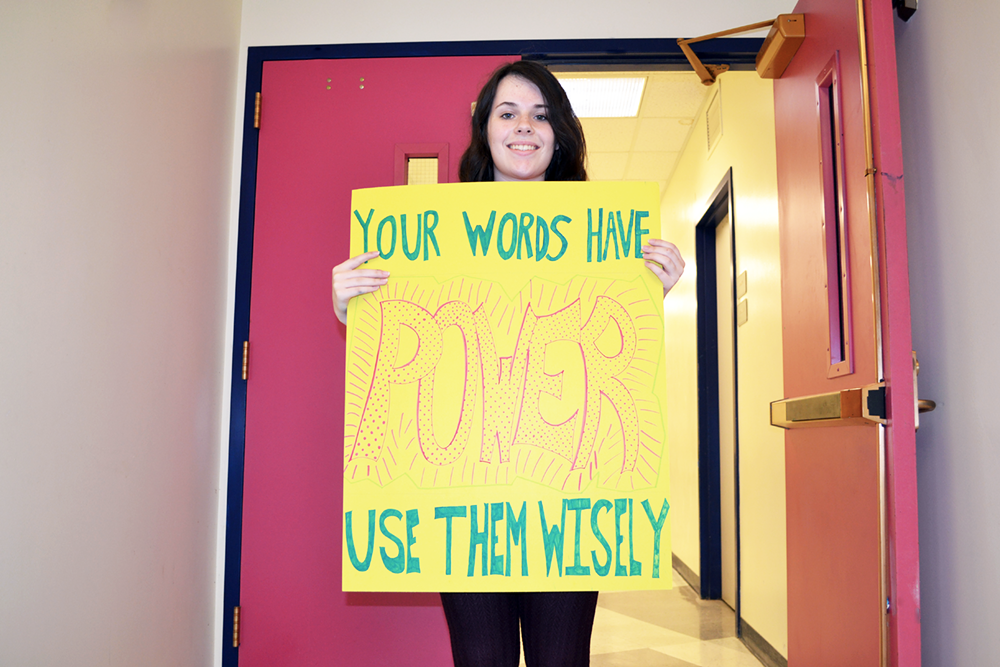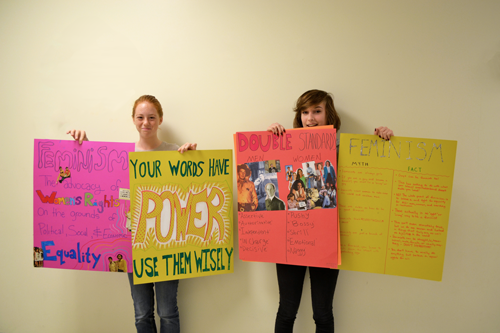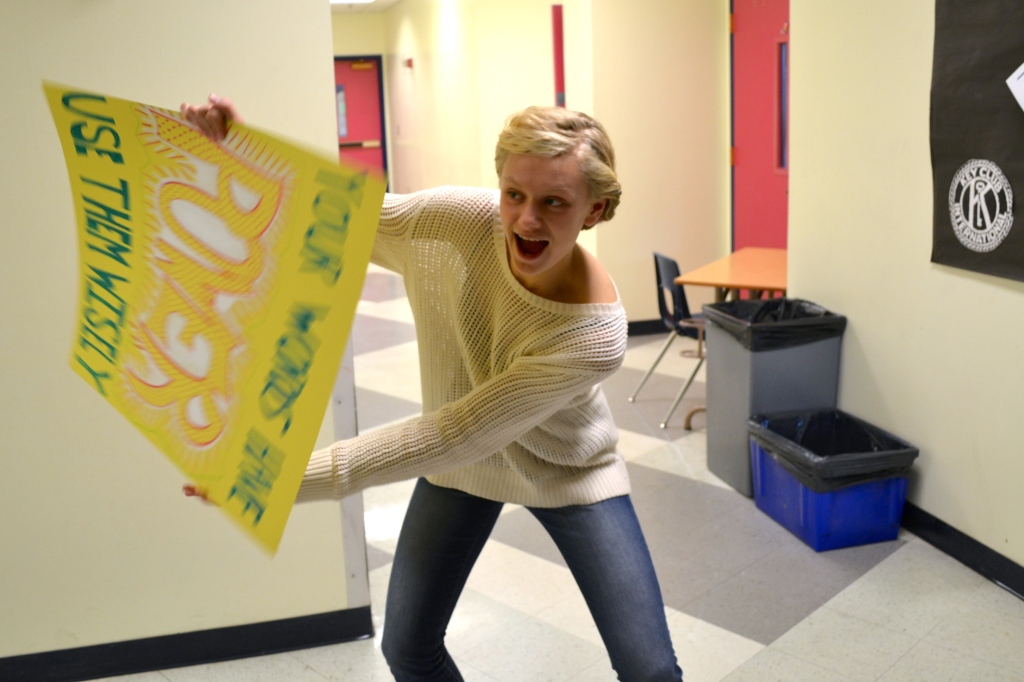Any mention of “gender issues” in a classroom usually brings up cheers or groans — which is exactly what the new club Gender Issues wants to discuss. Why are you groaning? Why are you cheering? Why is this important to you? What can you do to change the attitude of others around you?
“I hope to achieve higher amounts of tolerance and acceptance within our school and our community. I have noticed not only a lack of knowledge about what feminism truly means, but also a bitterness towards women, LGBTQ [people], and others who fight for their basic rights as human beings. To speak up and stand out in a small town makes you “different.” I think people are too afraid of breaking away from their normal day-to-day lives to actually fight for something. I want everyone to know that there IS something that everyone can do to make a difference. All they have to do is try. This all starts with educating yourself and allowing others to help educate you. I hope that this club helps others gain a better understanding of feminism and everything else that’s going on in our world,” said Lauren Ferrell, founder of Gender Issues, asked on what she wishes to achieve with the club.
Lauren Ferrell, founder
Many students have varying opinions on the topic of gender issues. Without being too harsh, it’s clear that many of these opinions have helped bring light to the underlying lack of acceptance to discussions of inequality at our school. But this does not just occur in Orcas Island High School. There’s a larger surge of discussion of gender inequality in the whole world. Prominently, the HeForShe campaign, Equal Pay, and Malala Yousafzai’s win of the 2014 Nobel Peace Prize.
Starting Oct. 6, 2014, the club Gender Issues began. Their mission: “To create a dialogue within our school and our community about current gender-related issues. We will educate through art, fundraising, and organized events. These activities will not only educate, they will empower.” At first, the club started as a meeting of eight young women in the commons, but since then, it has grown to a gathering of more than ten students: young women as well as young men.
In addition to directly helping students understand what gender issues and feminism really mean, the club has also helped spark discussion among the larger body of students. It’s already made an impact in the short time period between Oct. 6 and now.
“Frankly, the fact that the club has gained so much interest amazes me. Before it started, I received more than a few negative comments. Now, people I don’t even know tell me that they think what we’re doing is really great. The club has sparked interest in not only people who have labeled themselves feminists, but also people who have never really thought about what feminism really means. There are so many misconceptions out there about feminism. Now people have to decide if they’re going to believe the stereotypes or come to our meetings and decide for themselves. This club has people thinking, and that’s how any movement starts: with people thinking about what changes need to be made and how they can make a personal impact on the world. It’s a wonderful thing,” stated Ferrell.
Some “misconceptions” about feminism Ferrell speaks of is the idea that “men cannot be feminists.” “The Washington Times took a poll that said 72% of Americans said they weren’t feminists, but a large percentage of that said they did believe in equality,” said Devon Mann, showing how many think feminism is not the same as equality. “[Some think] feminists are man-haters,” said Maggie Paige.
Students joining the club is crucial to the health of the club. “I want people to understand that women’s issues are GLOBAL social issues, ones that ALL of us need to address. We can’t end sexism — and I’m talking mostly misogyny here — without men standing up and saying, ‘Whoa. That’s kinda crappy. Let’s help them end this.’ But most importantly, women and girls need to stand up for themselves and defend their rights,” said Ferrell, asked on the need of diversity. “One of my favorite quotes from Gloria Steinem is ‘Whenever one person stands up and says, ‘Wait a minute, this is wrong,’ it helps other people do the same.’ That quote is so true. This club needs to set an example. The more members we have, the more interest we’ll have. Having diversity within the club draws a diverse crowd and a diverse array of opinions.”
“Gender issues” are a broad, diverse topic. Mainly, the club focuses on feminism, however, discussions range from racism to teachers. Your contributions are crucial! Come to chill, discuss, or debate — Mondays, 3:15 – 4:15, Ms. Collister’s classroom.



